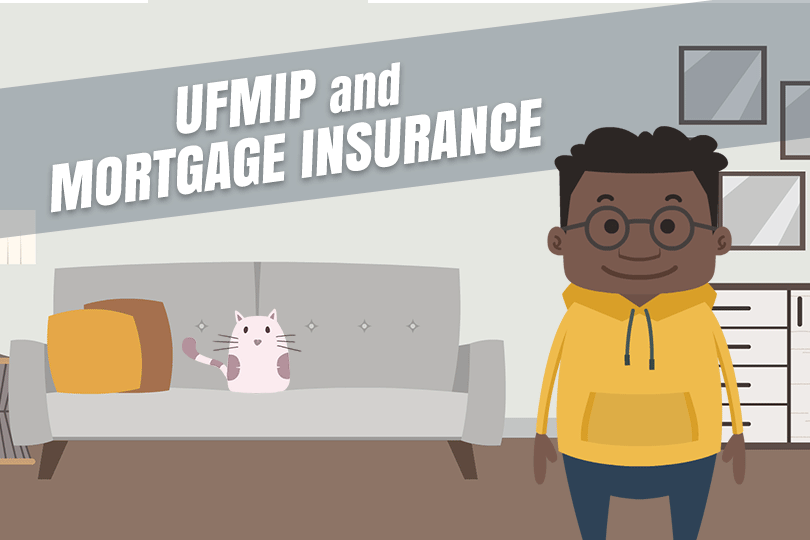Homeowner's Insurance - Why Do We Need It?
March 6, 2021
Homeowner’s insurance provides coverage to repair or rebuild your home, in the instances that are spelled out in the policy. Also known as hazard insurance, homeowner’s insurance typically covers damages to the house that occur from fire, smoke, theft, vandalism, and bad weather such as lightning, wind, or hail. Most policies also cover things inside in the home, such as furniture, electronics, and other possessions. They also cover the medical expenses and legal fees if people other than those living in the home are injured on the property.
Homeowner’s Insurance vs. Mortgage Insurance
Securing a homeowner’s insurance policy is required by your lender, but it is important that you do not confuse this policy with your mortgage insurance. While it is common to mix the two up, they are not the same! Homeowner’s insurance protects the borrower, while mortgage insurance protects the lender.
In the case of FHA loans, a monthly mortgage insurance premium (MIP) is paid along with the Up-front Mortgage Insurance Premium (UFMIP). In addition to funding the FHA, this mortgage insurance is there to protect FHA-approved lenders in case the borrower cannot repay the loan.
Similarly, conventional loans require private mortgage insurance (PMI). PMI is charged when borrowers make less than a 20% down payment on a conventional loan, making it riskier on the lender. The private mortgage insurance typically costs between 0.5% and 1% and is paid monthly until the borrower pays down enough on the principal amount - generally 20%, when the loan is no longer considered high-risk).
Never Assume
Unless specifically spelled out in your policy, do not assume that you are covered. Always keep in mind that you cannot claim coverage for issues that are not specified in your policy. This includes floods and earthquakes, but it may also apply to water damage from sewer pipes or storm drains, etc. Remember that flood and earthquake insurance is always sold separately. If you buy a home in an area designated as a flood zone or one that is prone to earthquakes, your lender may require that you purchase these additional policies.
Read and re-read your insurance policy so you know exactly what you are covered for. The wording of your agreement may be complicated, so take the time to ask your insurance agent as many questions as you have.
Costs and Coverage
The cost of your homeowner’s insurance policy varies based on several factors. First, there is the location of your home. This includes a bunch of factors within itself, such as how far your home is from a fire station, or how close it is to a body of water. Expect to pay a higher premium if you live in a high-crime neighborhood.
The age of your home will also affect the amount you pay. If you are purchasing a home built over 20 years ago, it stands to reason that there will be some upcoming claims for renovation. On the other hand, big upgrades such as a new roof or plumbing can bring down the cost of insurance.
A big factor that affects your insurance cost is the coverage you select. You can choose to have more extensive coverage in your policy if you have more valuables in your home, or to protect yourself from liability issues, but this will understandably raise your premium. The premium also varies based on the deductible you select. A higher deductible could reduce your premium costs up to 25%.
Finally, your insurance premium might look different from someone with the exact same policy because of your credit history. While a provider cannot refuse a homeowner, coverage based on their credit, they might offer a discount on the policy if their credit score is high enough. This gives borrowers one more reason to work on their credit when getting ready to buy a home.
------------------------------
RELATED VIDEOS:
Understand the Reasons for Private Mortgage Insurance
Carefully Read Your Closing Disclosure
Buying a Home With a Co-Borrower

FHA Loan Articles
March 13, 2024There are plenty of reasons to delay plans to refinance a home. One reason has made big headlines. When borrowers face higher interest rates than originally approved for, that is a good reason to wait to refinance.
February 12, 2024When you are approved for an FHA One-Time Close Construction loan, you get a single loan that pays for both the costs to build the house, and serves as the mortgage. One application, one approval process, and one closing date.
November 22, 2023In the last days of November 2023, mortgage loan rates flirted with the 8% range but have since backed away, showing small but continued improvement. What does this mean for house hunters considering their options to become homeowners soon?
November 4, 2023In May 2023, USA Today published some facts and figures about the state of the housing market in America. If you are weighing your options for an FHA mortgage and trying to decide if it’s cheaper to buy or rent, your zip code may have a lot to do with the answers you get.
October 14, 2023FHA loan limits serve as a crucial mechanism to balance financial sustainability, regional variations in housing costs, and the agency's mission to promote homeownership, particularly for those with limited financial resources.







